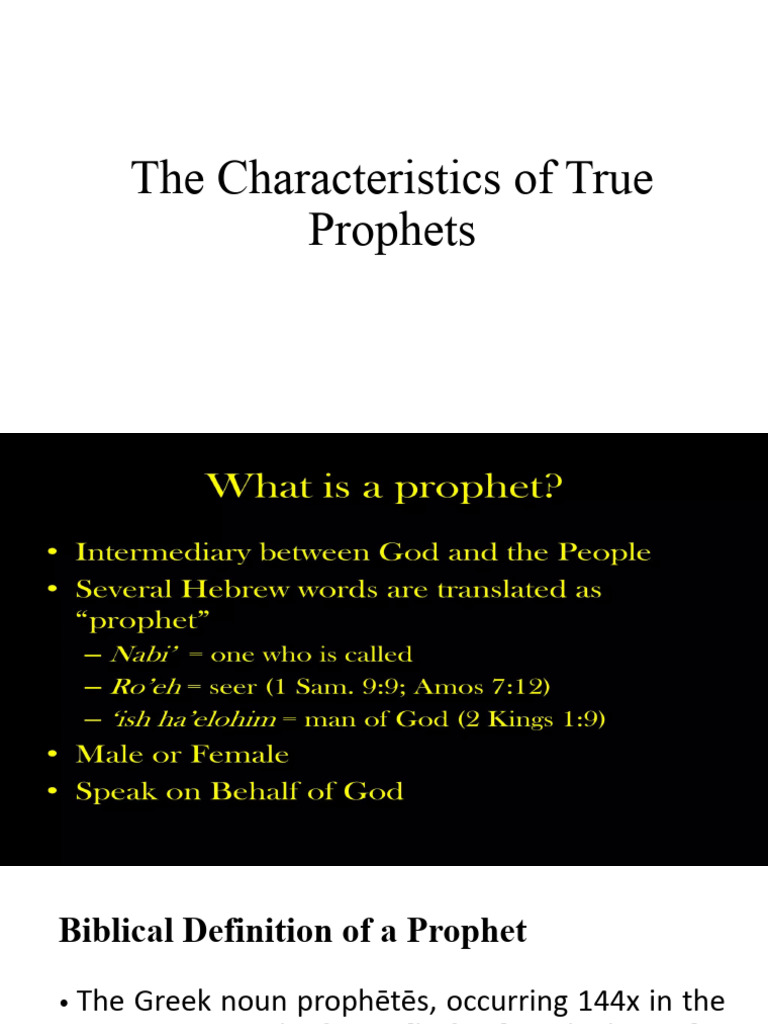Within the Bahá’í Faith, the concept of Prophethood transcends the mere role of a religious leader, embodying a profound connection to a cosmic narrative. Prophets are often likened to lighthouses, their beams illuminating the truth through tempestuous storms of confusion and doubt. This article delves into the remarkable attributes of these divine messengers: what they know, how they ascertain these truths, and the implications of their knowledge for humanity.
At the heart of the Bahá’í teachings lies the belief that prophets are not merely individuals who claim divine authority; they are the manifestations of the divine Will. These figures, such as Moses, Jesus, Muhammad, and Bahá’u’lláh, herald transformative teachings tailored to the exigencies of their respective ages. Each Prophet brings forth a set of truths that serve as an antidote to the spiritual maladies of their time, embedding their revelations within the tapestry of divine wisdom.
The nature of prophetic knowledge can be likened to a radiating sun, casting light upon the shadows of human ignorance. This analogy underscores that the knowledge possessed by prophets is comprehensive and encompasses spiritual, moral, and social dimensions. It is through their unique connection to the Divine—their direct communion with God—that they receive revelations. This communion is not merely figurative; it signifies an intrinsic alignment with a higher reality that grants them insight into the human condition as well as the cosmos.
How do prophets attain this profound knowledge? The answer resides in their spiritual potency and unwavering faith. Bahá’u’lláh explicates that the knowledge gained by prophets is not accrued through empirical observation or conventional learning but through spiritual experience. This experience is characterized by qualities such as humility, love, and a fervent dedication to the pursuit of truth. Their souls reach out to the Divine, infusing their beings with the understanding that surpasses intellectual comprehension. Thus, the prophets serve as vessels through which divine truth flows unencumbered.
This nexus between the prophets and knowledge also implicates the intricate relationship between God and humanity. The teachings illuminate the path toward unity, justice, and altruism, as emphasized in Bahá’í scripture. They possess an uncanny ability to discern the threads of humanity’s shared destiny, guiding followers toward a collective awakening. In this respect, their knowledge is inherently communal—designed to uplift society as a whole rather than simply individual enlightenment.
Their revelations encapsulate universal truths—what can be deemed timeless principles that resonate across cultures and epochs. Consider the metaphor of a wellspring; the prophets emerge as fresh sources of spiritual water that replenish the parched thirst for meaning and purpose. They articulate principles that promote social harmony, such as the oneness of humanity, equality of sexes, and the quest for justice. This fluidity enables their teachings to reinvent societal frameworks, inciting profound shifts in consciousness.
Moreover, the Prophets’ knowledge is progressive in nature. Each successive manifestation of God’s will complements the insights garnered from previous ones, weaving a continuous narrative of divine illumination. For instance, the ethical and spiritual teachings enshrined in the Abrahamic traditions find a new expression in the revelations of Bahá’u’lláh, instilling the virtues of altruism and cooperation amidst diversity. This progressive revelation emphasizes that truth is not static; rather, it evolves harmoniously with humanity’s development, much like a river carving its path through a landscape, adapting and transforming yet remaining true to its essence.
In addition to their wisdom, prophets demonstrate a unique capacity for empathy. They are not isolated luminaries but rather, they engage deeply with the plight of humanity. Their existential challenges mirror those faced by their contemporaries, allowing them to navigate the complexities of human emotions. This deep emotional intelligence enables them to offer guidance that resonates on a personal level. They walk alongside humanity, fostering a sense of connection that transcends temporal barriers.
Furthermore, the methods through which prophets convey their knowledge also wield immense significance. Whether through parables, poetic verses, or practical injunctions, their teachings aim to encapsulate profound truths in accessible formats. The written word often serves as the medium of transmission for prophetic knowledge, serving to solidify their teachings within the annals of history. Yet, it is vital to recognize that these revelations are not devoid of context; they emerge from the cultural and historical landscapes of their times, imbuing them with depth and relevance.
As we traverse the vast ocean of prophetic wisdom, one must acknowledge the intricacies of interpreting their messages. Bahá’í teachings advocate for an earnest approach to study, emphasizing the need for critical engagement with these texts. It is through this lens of inquiry that the richness of prophetic knowledge can be fully appreciated, revealing layers of meaning that resonate with contemporary challenges
In conclusion, the prophets of the Bahá’í Faith serve as conduits of divine wisdom, endowed with knowledge that is both expansive and intimately attuned to humanity’s needs. Their insights illuminate the path toward unity, empowerment, and spiritual evolution. Much like guiding stars that traverse the night sky, these divine messengers beckon humanity toward enlightenment and collective awakening. In embracing their teachings, individuals embark on a transformative journey—one that culminates in the realization of a shared destiny, deeply rooted in compassion and understanding.
